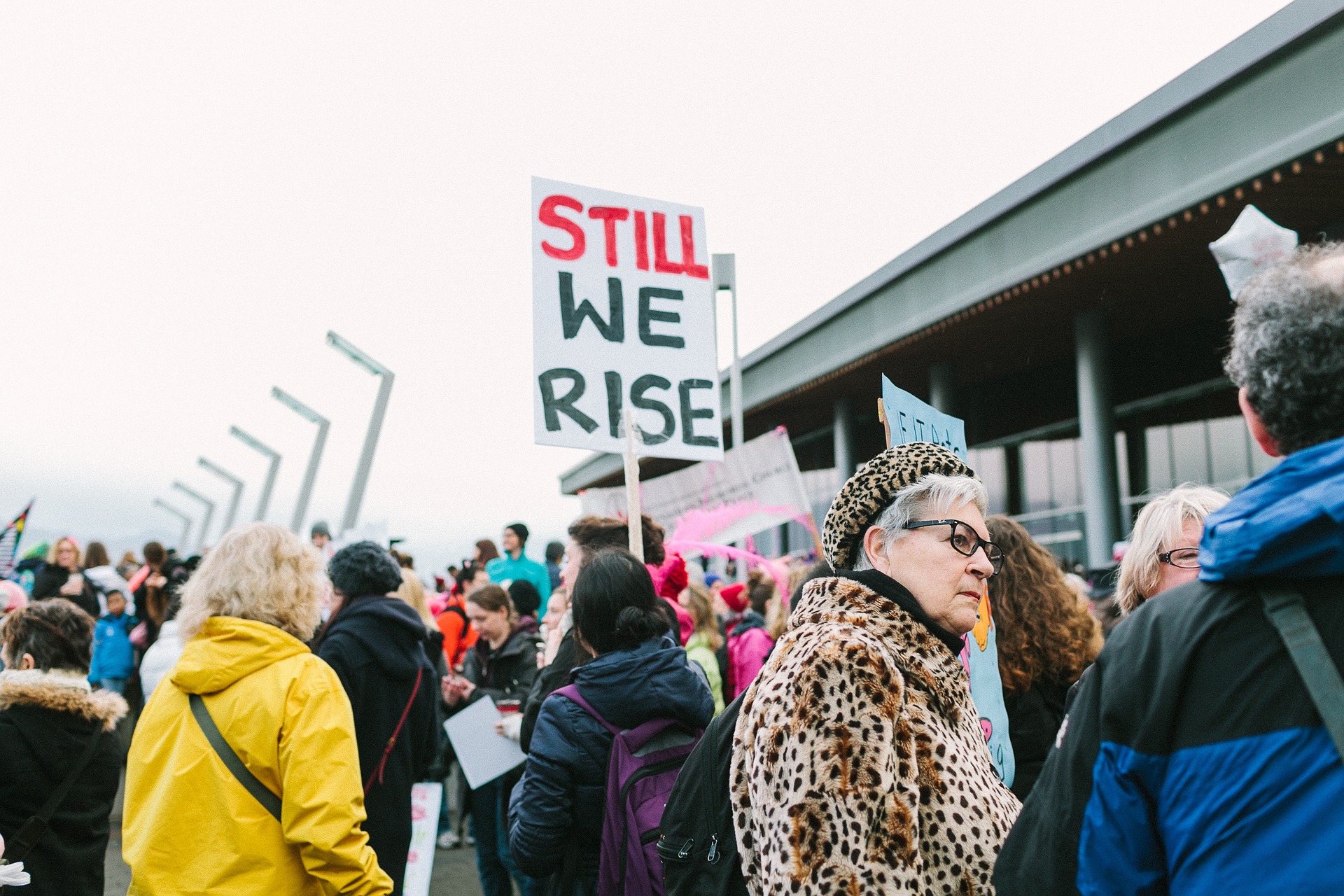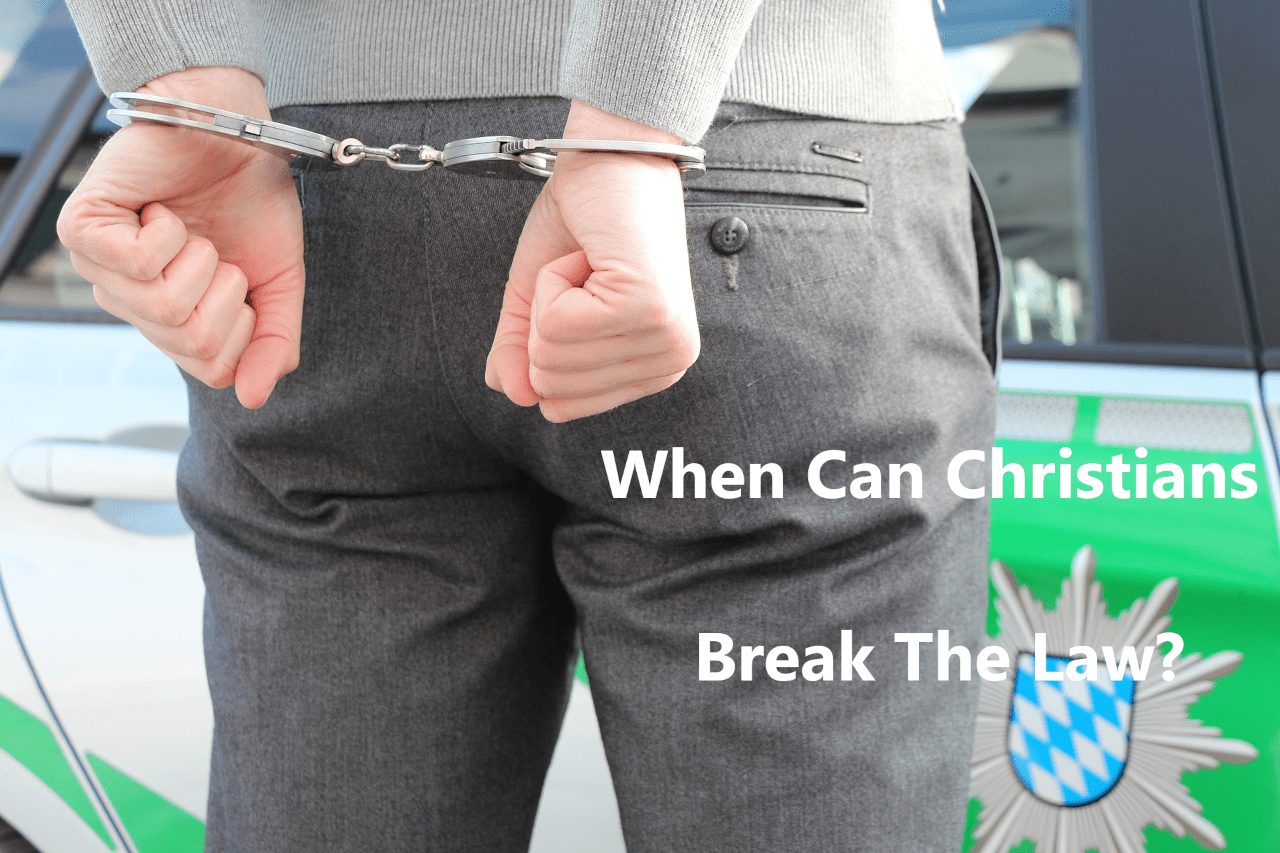Did Jesus Come To Bring Social Justice?
The term “social justice” is one that has taken center stage in the past few years. It is often used to describe the struggle between the haves and the have nots, the oppressors and the oppressed. It stirs up images of people making a stand and demanding fairness and equality.
Once this movement began ramping up, it didn’t take long for people to begin saying Jesus would have been for social justice. Then, soon after, people started saying he set the wheels of social justice in motion. And now, the message has become that the whole reason he came was for social justice.
As someone who proclaims to be a follower of Jesus, I have committed my life to the following of his teachings. This claim that he came to preach social justice is one I take very seriously. So, I have to ask myself; did Jesus come to proclaim a message of social justice? And, if so, how am I to live that out?
What Do You Mean By “Social Justice”?
Experience has taught me that the first thing to do when having discussions is to make sure we understand the definition of the terms we are using. And, you’re about to see why this is important.
When I see the word “social”, I am reminded that I am called to care for the sick, help those in need, and make the community I live in a better place to be. And, when I see the term “justice”, I know that is something I should stand for. Fairness. Seeing people get what they deserve.
By this definition, social justice is something that Christianity has been doing almost since it first began. Christians have always cared for the sick, seen to the needs of the poor, given shelter to those who need it, been at the forefront of educating the masses, and fought for change based on Biblical principles. We didn’t call it social justice, though. We called it charity. And, when the offering plate gets passed around on Sunday, a lot of those donations go towards these kinds of causes.
But, when used today in the discussions revolving around topics like race, immigration, financial and material possessions, gender issues, sexual activity, etc the term means something different. This movement begins by separating everyone into the “haves” and the “have nots”. The second move of this ideology is to say that the “haves” have what they have because of some immoral maneuvering or unfair advantage. And, the “have nots” don’t have what the “haves” have through no fault of their own; it’s solely because the deck is stacked against them. All of the systems around them are corrupt. Their solution to this problem is to tear down all of the systems in place, take what the “haves” have, and redistribute it to the “have nots”. So, the top goes down, the bottom goes up, and at some point, equality is achieved.
This is a concept made famous by Karl Marx in the late 1800s. His economic theories separated people into “haves” and “have nots” – or the oppressors and the oppressed – but he only saw the differences between the groups in terms of financial and material resources. The new movement – piggybacking off of this idea – uses things like race, gender, sexual preference, religious affiliation, and a few other things to determine where you fall on the oppressed vs oppressor scale. And, by tearing down the systems that keep the oppressed down, justice will be served.
Did Jesus Come To Promote Social Justice?
Now that we know what the modern definition of social justice is, we can turn to the gospels to see if this is something Jesus stood for. Let’s look at a couple of passages that people often cite regarding caring for the poor and fighting back against oppression.
The Rich Young Man
The first passage we will look at comes in Matthew 19:16-30 and Mark 10:17-31. In this passage, a rich young man comes to Jesus and asks what he must do to have eternal life. He tells Jesus he has done all of the things according to the Law of Moses. Jesus tells him that if he wants to be perfect, he needs to go, sell all of his possessions, and give to the poor. The young man went away pretty upset because apparently, he had a lot of stuff.
Case closed, right? Jesus is saying Capitalism bad, Socialism good, right? Everyone should go sell all of our stuff and give the proceeds to the poor. That might be what you get from the encounter if you don’t read what Jesus said next. To his disciples, he says “Truly, I say to you, only with difficulty will a rich person enter the kingdom of heaven.” (Mt 19:23 ESV). Notice that Jesus doesn’t say you can’t, he just points out that it is really hard. Why? Because when you live with a mindset of amassing more and more wealth or cars or trinkets, you tend to put that passion first in your life.
But, Jesus isn’t talking only about wealth The application goes much deeper and broader to speak into a lot more of the things we value in life that are keeping us from following him. Jesus is talking about the attachments we have to this world that we have to be ready to give up to follow him.
And it’s not just material possessions, either. It may be relationships, popularity, hobbies, or even causes we champion. Let’s say this website becomes hugely successful and I am feeling fulfilled by all the work it does. If God says to me “ok, Dave, I need you to give all this up and go start a kitten rescue mission in Mozambique”, I need to be ready to let go of this thing that is part of who I am and go do that.
Just look at what Jesus says a few verses later. In v29 he says
“And everyone who has left houses or brothers or sisters or father or mother or children or lands, for my name’s sake, will receive a hundredfold[b] and will inherit eternal life. 30 But many who are first will be last, and the last first”.
Matthew 19:29-30 (ESV)
Notice he says many. Not all, but many. Having fame, wealth, and/or high status doesn’t make you inherently bad; it’s how you got those things and what you do with them that matters. The point isn’t for all of us to give everything to the poor, the point is to consider what we are putting first in our lives. And to ask ourselves if we are willing to give that up to be a disciple of Jesus.
The Least Of My Brothers
Another popular verse that gets cited to say that Jesus came for social justice is Matthew 25:40 where Jesus says “And the King will answer them, ‘Truly, I say to you, as you did it to one of the least of these my brothers, you did it to me’” (ESV). This comes in a section where Jesus talks about how caring for those who need food, water, and shelter is the same as caring for him. In the broader context, this section is about who will get into the kingdom of Heaven.
It may seem like Jesus is telling us in this verse that the people who give the needy food, water, and shelter are in, and the ones who do not are out. But, let’s break this verse apart a little more to understand who Jesus was talking to and to whom he was referring.
In order to understand who the “them” was that the King was speaking to, we need to back up a verse. In v39, it says that the righteous asked the King a question. Well, who were “the righteous”? This is a term that Jesus often used to refer to the religious leaders of the Jews – the Pharisees, scribes, lawyers, etc.
Now, who was Jesus telling the righteous they should feed, clothe and care for? Jesus uses the term “my brothers” – which doesn’t mean all of humanity. It means people who follow him. In a word, Christians. Because people who follow Jesus are his representatives, caring for them is like caring for him.
Now, I’m not suggesting that Jesus was saying to only care for Christians (see below). My point is that using this verse to promote a social justice gospel is short-sighted and does not see the full picture – that Christians have the indwelling of the Holy Spirit and are Christ-like.
Blessed Are The Poor
The final verse I want to discuss is in Matthew 5:3 where Jesus says “Blessed are the poor in spirit, for there’s is the kingdom of heaven”. If we read the Bible through the lens of social justice, this seems to say that if we are poor, we are getting into heaven. And those who are well-off won’t. But if we read that again, Jesus tells us what kind of poverty he is talking about; it’s the poor in spirit. Not the poor monetarily or materially. Being financially poor doesn’t make you automatically virtuous. Jesus is talking about a different kind of poverty. Of the spirit.
So what does that mean? Who are the poor in spirit? These are people who come to God with spiritual humility. They realize that they are utterly bankrupt because of their sins and have nothing to offer to God that he needs. In contrast, there are people who are rich in the spirit. These are people who think that they should be looked on as righteous because of all the good things they have done. This verse isn’t about the poor that social justice is concerned about; it’s about being poor in a whole other way.
Jesus’ Actions Toward Those In Power
When people think of social justice, they often visualize people rallying, protesting, and marching against oppressive systems and offices of power. We visualize leaders of these rallies shouting and yelling and encouraging the participants to rise up and let their voices be heard.
But, Jesus never did things like that. Jesus did nothing to tear down the Roman empire he was born into. It was rife with oppression, slavery, and violence. Yet, he said almost nothing about that. It doesn’t mean he approved of its practices. It just means he had a bigger goal in mind.
Jesus wasn’t like the leaders of movements today. Jesus had a very non-antagonistic style. He told the Jews to pay their taxes to Caesar (Matt: 22:15). Jesus routinely healed the families of rulers of the synagogues and soldiers of the oppressive army (the centurions). And he didn’t tell the leaders and soldiers to give up everything they had. Just to follow him. When Jesus is brought before his accusers, he doesn’t champion any cause. In fact, he keeps silent. Jesus suffered the greatest injustice of all time. And yet, he did not fight back. This doesn’t sound like what we would call a radical now does it?
Does that mean Jesus was OK with the way the Romans treated its citizens? Of course not. But, he didn’t spend a lot of time on it because that’s not why he came.
What Did Jesus Say About The Poor?
I don’t want to ignore what Jesus did say about the poor. The broadest statement he made on this topic was to tell us to love our neighbors as ourselves (Matthew 22:39, Mark 12:31, Luke 10:27, and John 13:34). In Luke 14:12-14. Jesus encourages his disciples to invite those who are needy to their feasts. And Christianity clearly has a history of caring for the sick, orphaned, and needy.
Jesus does bring up the poor frequently in the Gospels. But, if you pay attention, it’s not usually to say “take care of the poor” or “poor person good, rich person bad”. A lot of the time when he brings up the poor it is to encourage others to have character traits that the poor possess – as a way to show others how they should act.
For example, in that passage from Luke 14:12-14, Jesus uses the example of tending to the needs of the poor to show that true love is shown when there is no chance of repayment. It’s one thing to do favors for people who can pay you back. It’s entirely different to care for those who can’t. This is the type of love God offers to us. There is nothing we could ever do to earn God’s love or “return the favor”. Yet, he loves us. And, that is the type of love we are to show to others.
In Matthew 6:1-4, Jesus does talk about giving to the poor. He says “when you give to the poor…” which does imply that we should. But, there is more to be learned here than just giving to those less fortunate than us. In a nutshell, this passage says when you give to the poor, don’t make a big scene. Don’t post it on Facebook to see how many likes you will get, don’t brag to your friends about it, and don’t make a big scene. Just do it. In other words, no virtue signaling.
As far as more direct commands to care for the poor, remember that Jesus was a Jew who followed the Old Testament. And there are plenty of commands there for caring for the poor (see Leviticus 19:9–10, Leviticus 19:15, Leviticus 25:35–36, Deuteronomy 15:7-8, Deuteronomy 15:10–11, Proverbs 14:21, Proverbs 14:31, Proverbs 19:17 and many many more).
So, Jesus certainly did care for the poor, the weak, the marginalized, and the oppressed. But, the point is that bringing social justice isn’t why he came. And, if you go flipping through the Bible looking through the lens of social justice, then you’ll miss the whole reason he did come.
What Did Jesus Come To Do?
So, why did Jesus come? What was his purpose? If you read the gospels, it’s pretty clear why he came; to call sinners to repentance (Luke 5:32). Jesus came to rescue us – rich, poor, male, female, boss, and worker – from sin. Jesus wasn’t the champion of the poor, he was the champion of the repentant. He didn’t care about social class – lower OR upper.
The message of the gospels is that Jesus came to pay a debt for us that we cannot pay – no matter how virtuous we think we are. He and he alone could and did pay the sin debt we owe. So that we can be restored to a relationship with our Creator.
Social justice divides the world up between those who have and those who do not. Jesus did divide the world up, too. But, it had nothing to do with your race, class, social position, or material possessions. He divided it between the repentant and the unrepentant.
Social justice has a very specific meaning inside of a worldview that is counter to Christianity. But, even if you want to take social justice to mean “helping the poor” that is not why Jesus came. People who want to put Jesus up as a social justice meme haven’t read the Bible. And if they have, they are reading it and trying to find affirmations for their causes.
The kind of equality Jesus taught about is like nothing else the world has to offer. We’re all equal alright – equally guilty of a sin debt that we cannot pay. And, the payment for that debt is equally available to anyone who would ask for his or her debt to be paid.
Share This Story, Choose Your Platform!
latest video
news via inbox
Nulla turp dis cursus. Integer liberos euismod pretium faucibua







Jesus said that it is easier for a camel to pass through the eye of a needle than a rich man to go to heaven. That sounds pretty unequivocal to me. (Strange that that gets left out) This whole article is an example of only hearing what you want to hear. No wonder so many Christians today are so Unchristian.Frankly, it’s not okay to pick and chose like this. In fact Jesus was a profound influence on people who wanted to change how society defines what is good, like Jesus himself and others like Martin Luther King and Gandhi, people that certainly have ‘read the Bible’.
Hey Andy, I’m trying to understand what you’re saying. Why do you think it’s strange that David left out Luke 19:24?
Salvation was Jesus principle purpose for his ministry but social justice emerged from that ministry. This side of heaven no finite being on either side of this issue has it all right. Heaven forbid Christian’s should try and work together toward that perfect balance of grace and truth that our Lord had. No, no let’s just quote scripture to prove just how much a bible believing christian our side is with the intent to prove the other side Christian wrong. And they will know us by our love. We can’t even love each other. Please God don’t hold salvation against the unbeliever because we Christian’s are so pathetic at our job.
Hi Denise,
Thank you for your comment. Do you feel that I was discouraging Christians from caring for the poor? Do you feel that Christians aren’t already caring for the poor or those less fortunate?
Dave
Interesting article, but you didn’t address faith without works being dead as evidence for Jesus instructing his followers to care for the poor:
James 2:14-26
New King James Version
Faith Without Works Is Dead
14 What does it profit, my brethren, if someone says he has faith but does not have works? Can faith save him? 15 If a brother or sister is naked and destitute of daily food, 16 and one of you says to them, “Depart in peace, be warmed and filled,” but you do not give them the things which are needed for the body, what does it profit? 17 Thus also faith by itself, if it does not have works, is dead.
Hi Marc,
I am very familiar with that passage in James. Can you help me understand why you think I should have mentioned that verse? I gave a lot of Scriptural evidence to make the case that Jesus said we should care for the poor. Are you saying I just left that one out of my list?